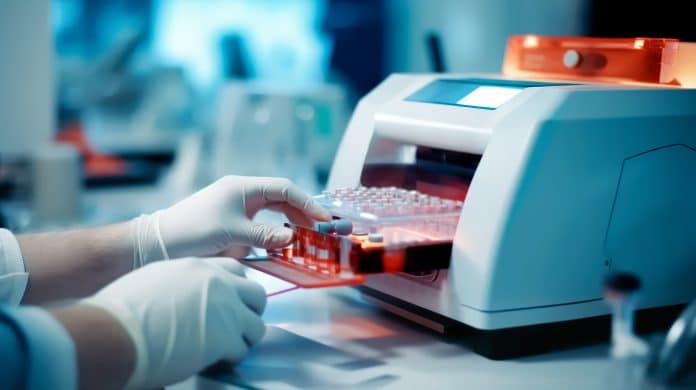The enzyme-linked immunosorbent assay (ELISA) is a fundamental tool in healthcare diagnostics. It plays a vital role in detecting diseases and guiding treatment decisions in a wide range of medical situations.
Imagine it as a highly sensitive sensor that can detect tiny amounts of important substances in our bodies, like hormones or antibodies. This sensitivity makes it a crucial method for diagnosing a range of conditions, from hormonal imbalances to infectious diseases. Despite the complexity of the task, this assay does it with remarkable precision.
Exploring its applications reveals its technical importance and how it continually improves patient health outcomes.
Diagnostic Advancements Driven By ELISA Applications
Advancements in medical diagnostics owe much to the precision and versatility of ELISA. This technology has enhanced the accuracy of diagnoses and transformed the way we approach patient treatment.
- Early Detection Of Diseases: This method’s sensitivity in early disease detection is a major leap forward. For example, in the case of HIV/AIDS, it has significantly reduced the time for diagnosis, leading to earlier and more effective intervention. Thus, it helps improve patient survival rates and reduce disease transmission.
- Identification Of Hormonal Disorders: For hormonal disorders, such as thyroid issues, this assay’s ability to measure hormone levels accurately is indispensable. The standard sandwich ELISA assay is commonly employed in these cases for its ability to quantify specific hormones precisely. This level of accuracy is crucial for developing effective, individualized treatment plans for patients.
- Detection Of Autoimmune Disorders: It plays a significant role in diagnosing autoimmune diseases by identifying specific antibodies. This capability is vital for conditions like Rheumatoid Arthritis or Celiac Disease, where early and accurate diagnosis can dramatically alter the course of treatment and patient quality of life.
- Enhanced Diagnosis Of Infectious Diseases: During health crises, this method has been instrumental in enhancing the diagnosis of infectious diseases. For instance, in the COVID-19 pandemic, it played a critical role in identifying infected individuals and understanding the immunity landscape. Thus, it can help shape public health responses and strategies.
- Allergy Identification: Its application in allergy testing is another area where diagnostic advancements are evident. By accurately identifying the specific allergens causing symptoms, it enables healthcare providers to offer more targeted and effective allergy treatments. This can improve patient comfort and reduce adverse reactions.
These advancements illustrate how this diagnostic technique has become an integral part of modern healthcare. By improving the accuracy of disease diagnosis and opening avenues for personalized treatment, it continues to be a key player in improving patient care and medical practice.
Innovations In Healthcare Driven By ELISA Applications
ELISA’s influence extends beyond diagnostics, spurring innovations across various aspects of healthcare. Its integration with new technologies and methodologies has opened new horizons in patient care and treatment.
- Portable Diagnostic Kits: The development of portable kits marks a significant innovation. These kits have made it possible to conduct tests in remote or resource-limited settings, bringing essential diagnostic capabilities to underserved communities. This portability means faster, on-site diagnosis, which is vital in managing health conditions effectively.
- Customized Therapeutic Strategies: The detailed results of this assay aid in developing customized therapeutic strategies, especially in chronic disease management. By providing a clear understanding of a patient’s condition, it allows for treatments to be tailored specifically to individual needs. This enhances the effectiveness of medical interventions.
- Advanced Disease Research: This technique is integral in advancing disease research, particularly in understanding complex conditions like cancer and autoimmune diseases. By enabling detailed analysis of disease markers, it contributes to the development of targeted therapies and a better understanding of disease mechanisms.
- Enhanced Screening Programs: Its role in large-scale screening efforts has significantly bolstered public health initiatives. Screenings for diseases such as hepatitis and tuberculosis have seen improved detection rates, leading to earlier interventions and better control over these conditions in populations.
- Integration With Digital Health Technologies: The fusion of this method with digital health technology is a significant step forward. This combination enables quicker data analysis and remote patient monitoring, leading to a more dynamic and responsive approach. This is particularly beneficial in chronic disease management and preventive health.
The innovations driven by this reliable assay in healthcare demonstrate its versatility and impact. This makes it invaluable in our pursuit of better health outcomes.
Challenges And Limitations Of ELISA Applications
While this diagnostic method has significantly improved healthcare, it also faces challenges and limitations in implementation.
- Risk Of Inaccurate Results: One primary hurdle is the potential for false positives or negatives, which can impact the accuracy of diagnoses. Efforts to improve reagent quality and enhance technician training are ongoing to address these issues.
- Accessibility Constraints: The need for specialized equipment and trained personnel can limit accessibility, particularly in resource-limited settings. Innovations focused on simplifying the technology and reducing costs are essential to making this method more universally available.
- Adaptation To Evolving Pathogens: The rapid evolution of diseases and new pathogens presents a continuous challenge. Regular updates to testing protocols and ongoing research are necessary to ensure the assay remains effective against emerging health threats.
These challenges highlight the need for ongoing improvement and adaptation in medical diagnostics. This can help ensure this method continues to be a valuable tool in global healthcare.
Final Thoughts
ELISA has made significant contributions to healthcare, particularly in diagnostics. It has improved disease detection and enabled personalized treatments, demonstrating its importance in modern medicine.
As it continues to evolve, it’s poised to introduce more sophisticated solutions for disease management. The ongoing refinement and expansion of its applications highlight its significance in enhancing patient care and propelling healthcare forward.
























